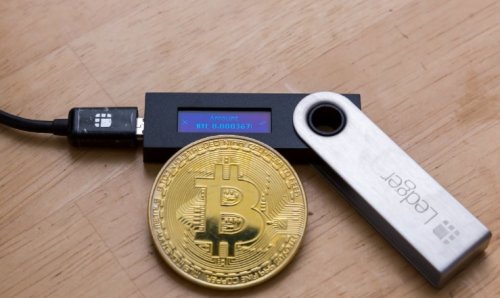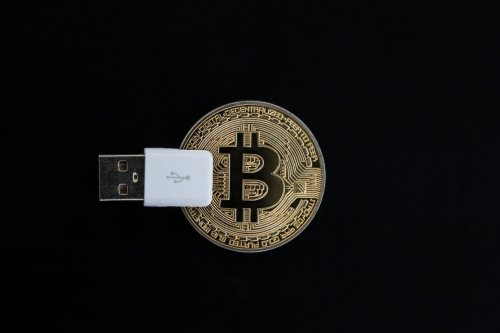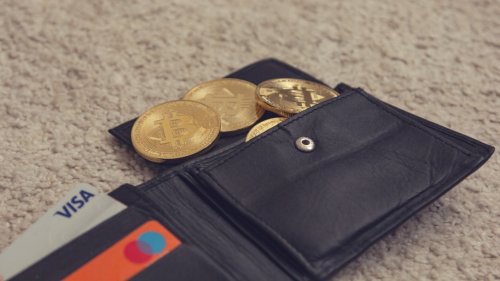What is a Crypto Wallet App?
A Crypto Wallet is a convenient medium to store your cryptocurrencies. We keep our paper money and coins in ordinary wallets, so why not preserve and protect our digital assets in an adequate ‘wallet’?
The idea is to keep all your digital assets at one place, so that you can use it from there for any financial transactions. The crypto wallet is an app that can be run on a smartphone,
laptop or desktop computer. The very first crypto wallet was introduced, of course, by Satoshi Nakamoto back in 2009 when the very first bitcoin protocol appeared. It is convenient to know that a crypto wallet can accept and hold multiple cryptocurrencies.
It is evident now that a crypto wallet is special software holding relevant secret and public keys essential for cryptocurrency transactions. It records encryption keys necessary to sign
any digital transactions as well as the address on a blockchain where a certain asset resides. It has to be remembered once for good that losing these keys implies losing digital money or other assets. As simple as that!
Try to imagine what a crypto wallet application may look like in the future. They could simply be a status symbol or even an essential element of one’s identity! The Crypto wallet should not be confused with eWallet, which is an online account where you can manage your money just as you would with a normal wallet.
Let us distinguish between Two Main Types of Crypto Wallets
So, you would like to acquire a certain cryptocurrency. It could be a gift, or perhaps you would like to buy it. It is enough to direct the sender to a unique address created by the crypto wallet. Now, if you feel like spending your newly gained digital assets, it is as easy
as scanning a retailer’s QR code or directing your digital money to the dedicated retailer’s address.
The two main types of crypto wallets are called cold storage (or hardware wallet, which is not the only cold storage possibility) or hot storage (or online wallet). Online wallets are MyEtherWallet or Blockchain or many different apps for both PC and mobile; and also crypto exchange wallets which are not under your ownership since you don’t have/know the private keys.

Security-wise, it is much better to keep a cold wallet as it is not online. The cyber attacks mostly take place at the time of digital transfers. Apart from major attacks on online crypto
exchange also many smaller thefts happened almost exclusively via hacking online wallets. It would appear that the safest option would be not to store any digital currency in online crypto wallets.
How to Improve Crypto Wallet Security
One simple option is to maintain a cold wallet and simply produce a paper copy of the digital keys and place that paper in a safe and secure place. It should be remembered that hackers could steal the SIM identity of a smartphone with, of course, a mobile phone based digital
wallet inside. Thefts were also registered through ‘strategically’ placing malware on a targeted device with cryptocurrencies which resulted in the owner’s secret keys being stolen.
To prevent these losses, it is necessary to pick a hardware or cold wallet and ensure a proper safekeeping of the secret keys at an adequate place. Losing keys is not an option because that means the assets were lost forever. In more poetic language it means your digital gold now resides on an unfamiliar blockchain address and you do not possess secret keys required to prove the ownership.
Why is it essential to protect and strongly safeguard the secret keys? Because the blockchain transactions are based on a certain ‘trustless’ consensus mechanism which effectively means you don’t care or don’t have to know who you engage in transactions with. A blockchain ledger is accepting any transactions signed by a proper and valid key. We couldn’t stress enough how important it is to protect and keep the keys.
Let us conclude that crypto wallets are a place to store your crypto investments safely and undertake digital signing through your private keys for the relevant ledger to accept and process the transaction.
Public and Private Security Keys

Ultimately, any transaction in crypto currencies requires two things: a wallet address or ‘public key’ and the owner’s private key. Maybe we can compare a public key with a bank account number, while a private key could be a password or pin code for your current
account.
Crypto currencies are not directly or ‘physically’ kept inside the wallet. Instead the crypto wallet keeps information about public and private keys, which essentially gives powers to the owner to send or receive cryptocurrency.
As much as many crypto aficionados see cold storage as the gold standard in terms of protection of digital assets, as it is offline, it is still possible to hack a hardware wallet. For instance you may misplace or lose a hardware wallet or if you buy a device from an untrusted
third party it could have been tampered with and the digital investment could be in grave danger. Of course, it is very risky to keep digital funds online. Once public and private keys are connected to the Internet, hacking is a very realistic possibility.
Basic security measures include two-factor authentication, keeping private keys secret at all times and maintaining powerful passwords which should be updated regularly. Also, refrain
from using a single password more than once, as much as that may be convenient.
Do we Need a Crypto Wallet or Not or How to Choose
the Best Crypto Wallet?

We learned the basics of public and private keys, hot and cold storage and perhaps a few other fancy cryptocurrency security related words and what’s next? So, how to choose an adequate crypto wallet?
It is essential to understand that your digital assets are not as safe as cash in a bank, for instance as there is no regulatory or other body to protect your possible losses.
If you would like to keep your digital gold for a long time, it is obvious to use cold storage. Another important consideration is the longevity of the wallet or the platform. If a particular crypto wallet was properly ‘time tested’ it could be a great pick as probably there is an
experienced security team behind able to do an excellent job.
FAQs?
Define a cryptocurrency wallet?
A piece of software storing cryptocurrencies using a public/private key algorithm and via interactions with different blockchain allows owners to send and receive digital currency and check the balance.
What are types of cryptocurrency wallets?
Online, Mobile, Desktop & Hardware
What is a desktop wallet?
It is installed on your PC or laptop. It cannot be assessed from a different device. It is a pretty safe option, however a desktop wallet is at danger if the computer in question is hacked or perhaps got a virus.
Define a cryptocurrency online wallet?
Available at all times and always connected to the Internet and very convenient indeed. For instance crypto wallet apps installed on your PC or mobile like Mycelium or Exodus are also online wallets. Such software is not controlled by third parties. It is controlled by you;
however it is still online and connected the Internet, and consequently potentially vulnerable to theft or cyber attacks.
What is a cryptocurrency mobile wallet?
As it is available as an app on your smartphone, and it is very convenient to use in any retail context. These mobile gadgets are smaller than desktop wallets. They are, however, very
vulnerable to various hacking attacks.
Define a hardware wallet?
They are stored offline and keep private keys on a hardware device that is protected and never touches the Internet. You can still make online transactions with a hardware wallet but the software uses several layers of security that render private key stealing or revealing virtually impossible.
Do you know what a paper wallet is?
A paper wallet is a very secure option of keeping public and private keys on a piece of paper. Another meaning is software used to generate a pair of digital keys which may be printed
thereafter.
Conclusion
It is possible to imagine a future global economy based on crypto wallets with tax or medical information or financial histories. Ultimately all traditional gadgets, such as passport, ID,
driver’s licence etc. may be conveniently stored on the blockchain, giving powers to the owner to decide who can access these documents. That is why the security of these
applications is extremely important.
It is not easy to pick the right crypto wallet, however it is an essential item for anyone starting with cryptocurrencies. After sorting out all security-related issues, it is necessary to decide a cryptocurrency strategy and then pick the best option. For instance, the best Bitcoin wallets
make it easy to store and manage your crypto portfolio.


